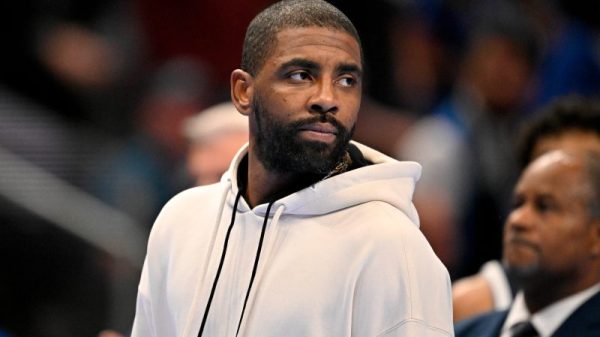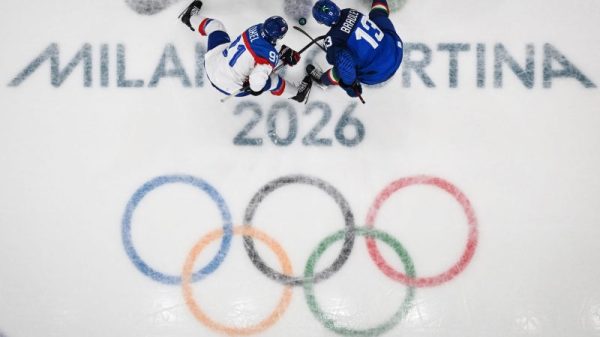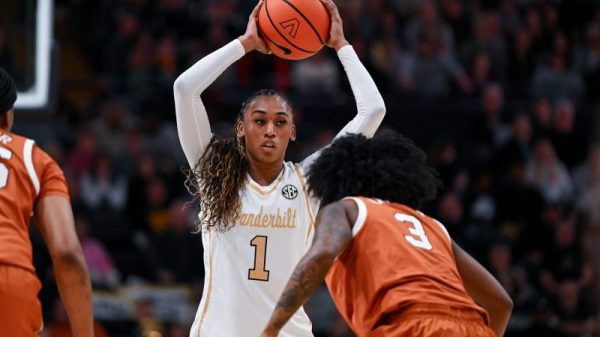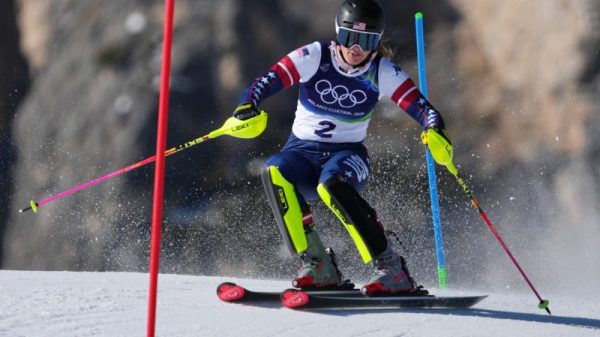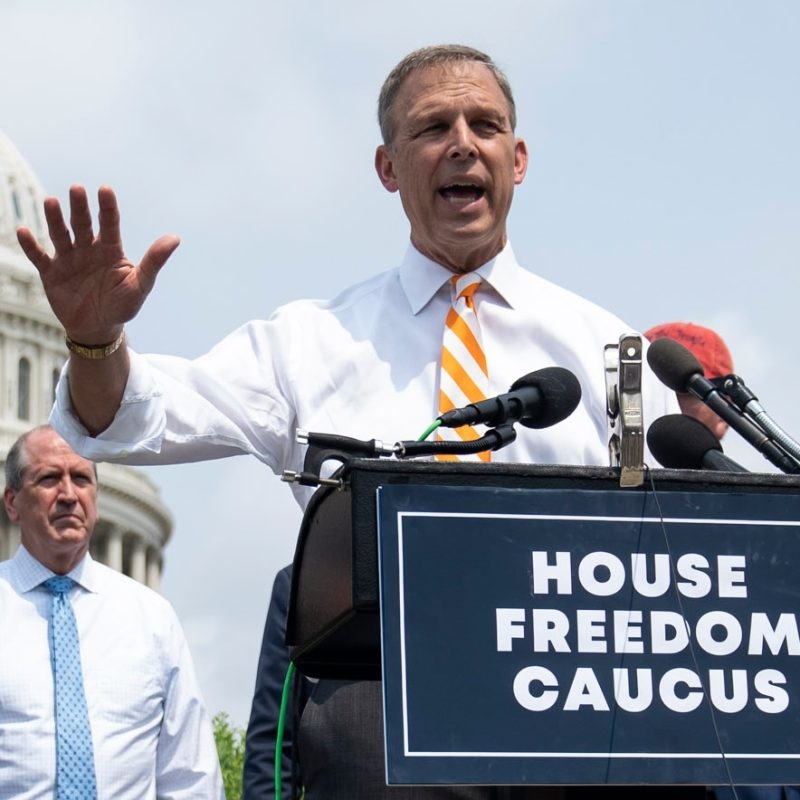A secret legal fight over the cellphone of Rep. Scott Perry (R-Pa.) has prevented the Justice Department for more than six months from reviewing more than 2,200 documents in the criminal investigation of former president Donald Trump and supporters’ efforts to overturn the 2020 presidential election, a federal judge disclosed Friday evening.
Chief Judge Beryl A. Howell of the U.S. District Court in D.C. released a number of previously sealed opinions after finding that the “powerful public interest” outweighed the need for secrecy in the constitutional battle over Perry’s claims and the historic investigation.
The Pennsylvania Republican has asserted that 2,219 documents contained on his phone are shielded by the Constitution’s “speech or debate” clause, which grants members of Congress immunity from criminal investigation in their official capacities. But in a ruling in December, Howell rejected that claim for more than 90 percent of the records, ordering Perry to turn over 2,055 text messages, emails and attachments after concluding that they were only incidentally related to his status as a lawmaker, and not central to that status and constitutionally protected as part of his lawmaking.
“What is plain is that the Clause does not shield Rep. Perry’s random musings with private individuals touting an expertise in cybersecurity or political discussions with attorneys from a presidential campaign, or with state legislators concerning hearings before them about possible local election fraud or actions they could take to challenge election results in Pennsylvania,” Howell wrote.
The scope and nature of the Perry fight had been secret, because they involve an FBI search warrant used to seize Perry’s phone on Aug. 9. But Howell said the Justice Department agreed to unseal details Friday because a federal appeals court held fast-tracked public arguments this week after staying Howell’s order and approved the release of her key opinions to certain members of Congress and the House general counsel’s office. That office has taken Perry’s side. Perry’s lawyers objected to the unsealing, but Howell said redactions protected his interests, noting that the government’s specific allegations about why Perry’s phone might contain evidence of a crime remain under seal.
Perry is a key figure who sought to help Trump replace the attorney general after the 2020 election with former Justice Department official Jeffrey Clark and get the Justice Department to reverse its finding that Joe Biden had been elected fairly, according to the House committee that investigated the Jan. 6, 2021, attack by Trump supporters on the U.S. Capitol. The Justice Department has separately prioritized and obtained access to 37 emails between Perry and Trump-connected lawyers John Eastman, who pushed false claims of mass electoral fraud in 2020, Clark and aide Ken Klukowski, as well as 331 documents from Clark about his Jan. 6 role, according to the filings.
In Thursday’s oral arguments, two members of a three-judge panel of the U.S. Court of Appeals for the District of Columbia Circuit challenged the line drawn by the Justice Department and Howell distinguishing between a lawmaker’s work in formally sanctioned congressional investigations and Perry’s “informal legislative fact-finding.”
Perry attorney John P. Rowley III argued that such fact-finding is protected against intrusion by the executive branch of the government.
Over four separate opinions totaling 68 pages released Friday, Howell countered that she was relying on several opinions by the D.C. Circuit Court of Appeals itself laying out that distinction. She also said that the appeals court in a 2007 opinion about a bribery investigation of Rep. William J. Jefferson (D-La.) went further than the Supreme Court in finding that the “speech or debate” clause protects lawmakers not only from being questioned, but also shields them from disclosing documents in criminal or civil disputes.
Howell warned that accepting Perry’s “astonishing view” that the lawmakers are protected not only from questioning but also from even disclosing records in the first place would turn members of Congress into “supercitizens” — immune from investigative scrutiny, criminal or civil liability and political accountability.
“No matter the vigor with which Rep. Perry pursued his wide-ranging interest in bolstering his belief that the results of the 2020 election were somehow incorrect — even in the face of his own reelection — his informal inquiries into the legitimacy of those election results are closer to the activities described as purely personal or political [ …], since this ‘fact-finding’ was conducted entirely outside the auspices of a formal congressional inquiry or authorization,” Howell wrote.
Howell agreed that 164 of 611 communications Perry conducted with other House members were privileged because they concerned core legislative actions involving Congress’s joint session to confirm the 2020 electoral college vote, and matters such as committee assignments. But she rejected that claim for 678 messages with private outside parties — including many in which she said Perry was not obtaining information but relaying it.
Howell similarly rejected Perry’s bid to shield 930 messages involving executive branch officials, finding it “ironic” that Perry would turn the Constitution’s intended protection of lawmakers from executive branch interference in legislative matters “on its head.”
By contrast, the judge wrote, Perry’s “multipronged” and “proactive, persistent and protracted” efforts to push executive branch officials to take more aggressive action over the 2020 election “demonstrated that he welcomed, rather than resisted, and indeed often initiated these communications.”
In a Jan. 4 decision, Howell refused to stay her order pending appeal. “None of Rep. Perry’s alternative considerations outweigh the government and the public’s interest in an expedi[tious] investigation,” the judge wrote, after she earlier warned Perry against continuing to “slow-walk” litigation.
Perry, who has not been charged, has said through a spokesperson that he is considered a witness, not a subject, in the investigation.
In a written statement, Rowley, the Perry attorney, said: “As a Member of Congress, Mr. Perry had an obligation to be fully informed about his vote to certify the 2020 Presidential election. He is standing up to protect from Executive Branch intrusion the privileges afforded to all Representatives and Senators by the Speech or Debate Clause of the United States Constitution.”






